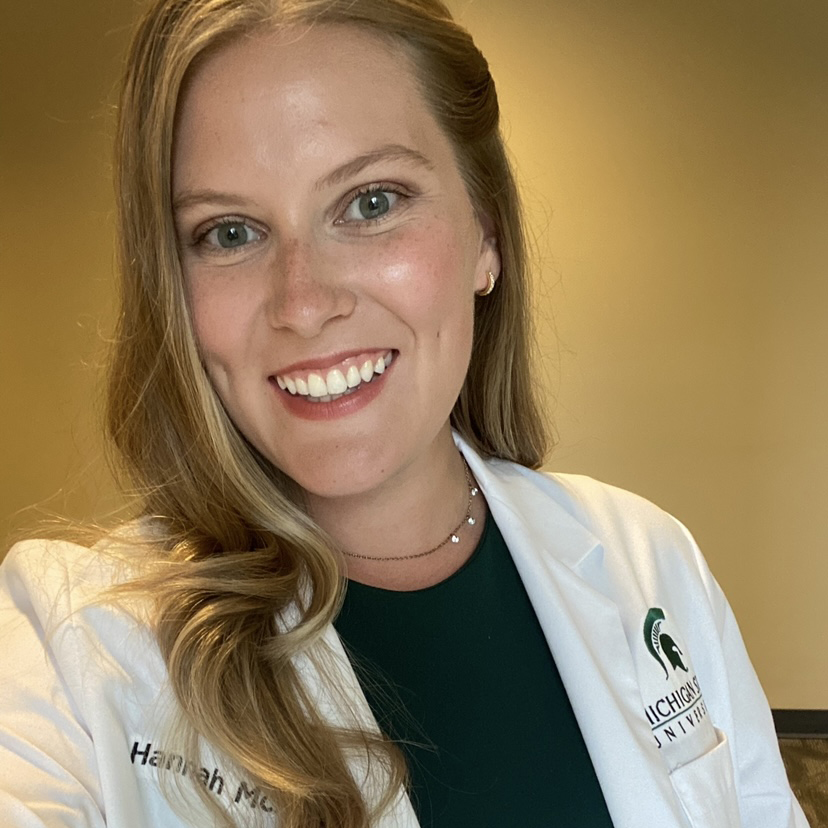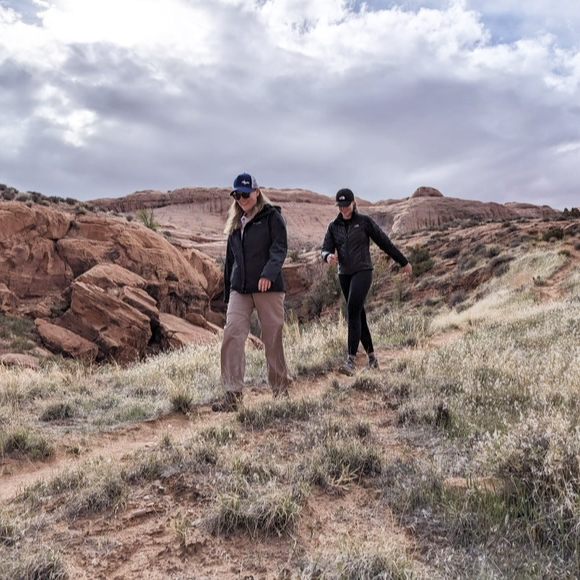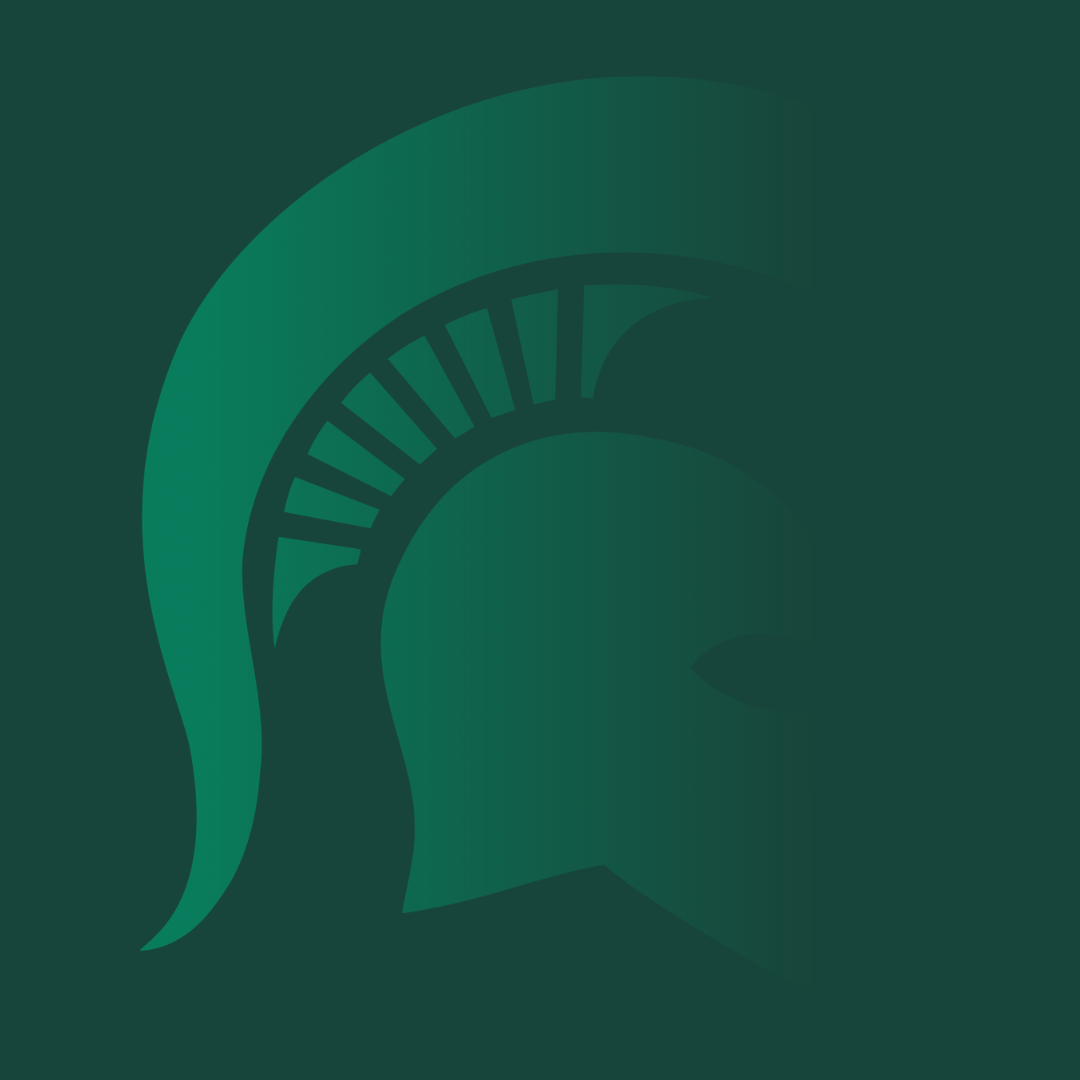Future Healer: Student Scholar Will Serve Rural, Indigenous Communities
September 20, 2024

Describing the town of Gould City, in Michigan’s Upper Peninsula, is simple. Drive west on U.S. Route 2. Go left. There are two bars, a park, and a church. Just past the park there’s a big hill with a house, up Corinne Road.
This is where third-year future Spartan MD Hannah McArthur grew up. Within this close-knit community, her grandmother lived next door and her aunt’s house was a quarter mile away.
Hannah attended public school seven miles away in Engadine—also simple to describe with a restaurant, gas station, and a school—and was one of 16 graduates in her high school class. Behind the gas station is a small clinic. There isn’t a major hospital within 100 miles.
“My desire and passion to serve populations lacking access to care comes from seeing my family, friends, and neighbors drive two hours to see a doctor in Marquette,” Hannah said. “Typically, something like a birth in many parts of Michigan and the nation is a normal thing, but where I’m from, it becomes so much more complicated.”
Many folks in Hannah’s hometown were native to the area “which was normal, everyday life,” she added. As an extension of Hannah’s lived experiences, she is participating in the college’s Indigenous Pathway Program in Petoskey, where she and other MSU students will work in a tribal clinic, learning to be mindful of how western medicine intersects with the primary beliefs of the community.
For almost 50 years the Leadership in Rural Medicine Programs have trained doctors in underserved rural communities across Michigan. The programs educate rural-minded medical students in small towns and clinical sites statewide to encourage and empower students to serve these populations in their careers as physicians.
Bridging the Gaps
As the first recipient of the Dr. Harry D. Brickley Endowed Scholarship in Human Medicine, established in 2023, Hannah is receiving the financial support she needs to excel. The scholarship was matched with the Mashkiki Endowed Scholarship in Human Medicine—both funds offer tuition support to students like Hannah, who have a specific interest in serving the state’s Indigenous populations.
In recent years, MSU has also partnered with Bay Mills Community College, a tribally controlled college in the Upper Peninsula, to provide financial support and mentorship to Indigenous students on their way to medical school. The college’s leadership has worked with the tribal health clinic of the Little Traverse Bay Bands of Odawa Indians to provide clinical experience in tribal clinics to MSU students.
 Medical students like Hannah, who are interested in the rural, Indigenous health pathway, typically come to the college from rural areas. This is not by accident. The college’s holistic recruitment process is intended to bring future physicians to MSU who return to their communities and serve the people there; address inequities; and increase access.
Medical students like Hannah, who are interested in the rural, Indigenous health pathway, typically come to the college from rural areas. This is not by accident. The college’s holistic recruitment process is intended to bring future physicians to MSU who return to their communities and serve the people there; address inequities; and increase access.
Family medicine physician Frank Animikwam, MD (CHM ’17) is a great example of that mission in action. Dr. Animikwam is the medical director at the Little Traverse Bay Bands of the Odawa Indians (LTBB) health clinic, and a clinical assistant professor of family medicine, supervising students during two-week clerkships.
The clinic provides medical, dental care and mental health care as well as traditional healing. Hannah will be working alongside and learning from Dr. Animikwam for two weeks in November*.
Dr. Animikwam is also working to establish a rotation at McLaren Northern Michigan for medical residents in the MSU Family Medicine program. Right now, there are fewer than ten medical doctors serving Indigenous communities in Michigan.
This, coupled with a looming physician shortage and deep health disparities throughout underserved areas, combined with rural health care gaps makes Spartan MDs a critical community need. Once in practice, aspiring primary care MDs like Hannah will be in higher demand than ever.
Which means students—many who come from underrepresented or underserved backgrounds or are first-generation—need your support now more than ever.
“The more I’ve learned, the more excited I’ve gotten because I know how valuable this will be to my family and community…there’s a great need and I want to help fill these gaps in rural care,” Hannah said. “I know I’m supposed to be here.”
Support Rural Medical Students
For more information on how to support students like Hannah, please contact our office at (616) 234-2714 or chmdevelopment@msu.edu.
Related News ![]()
Creating a Pathway to Improve Health in Indigenous Communities
Native American Heritage Month: A Student Reflection
*November is Native American Heritage Month, a time to learn about rich and diverse Indigenous cultures, traditions, and histories of the land we inhabit. The College of Human Medicine acknowledges the rich ancestry of Native Americans and the important contributions of this nation’s original people, including to the processes of learning and healing. Read MSU’s provisional land acknowledgement.
By Sarah Enlow


